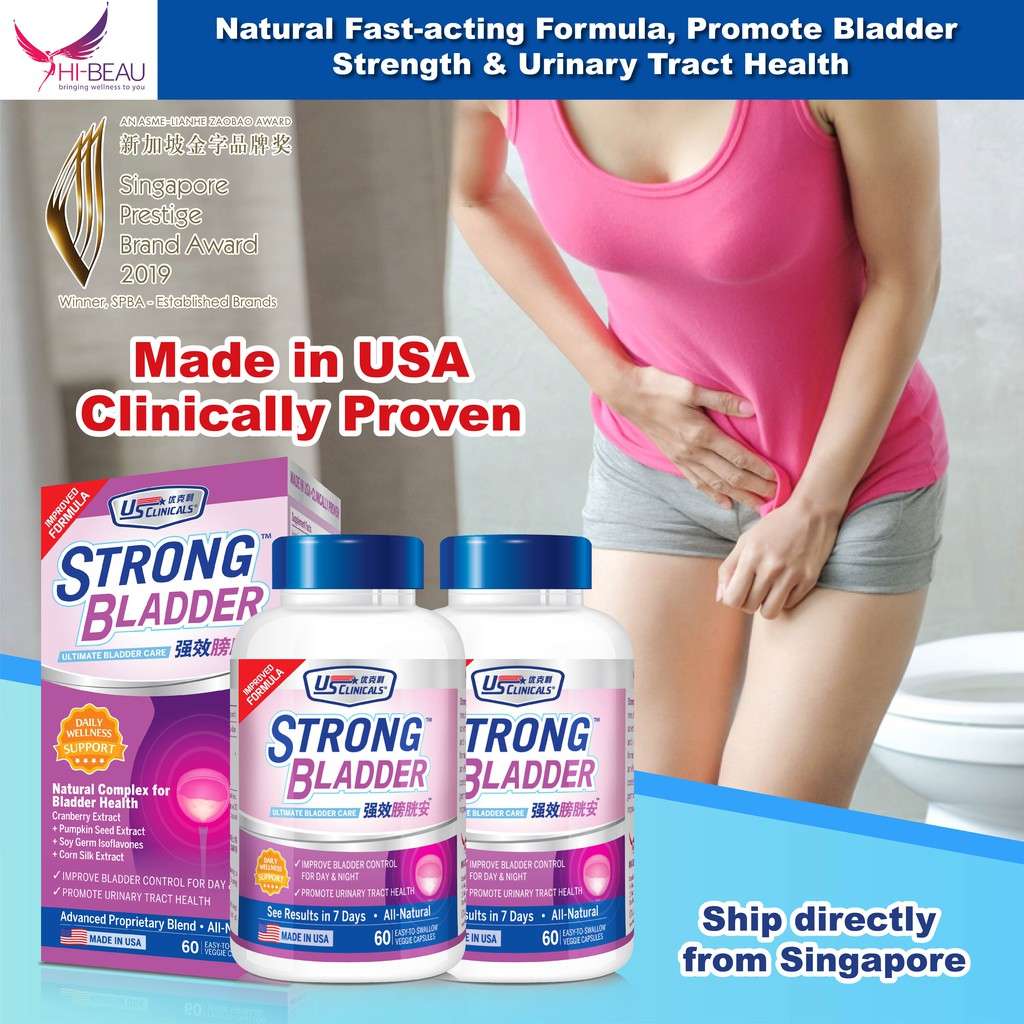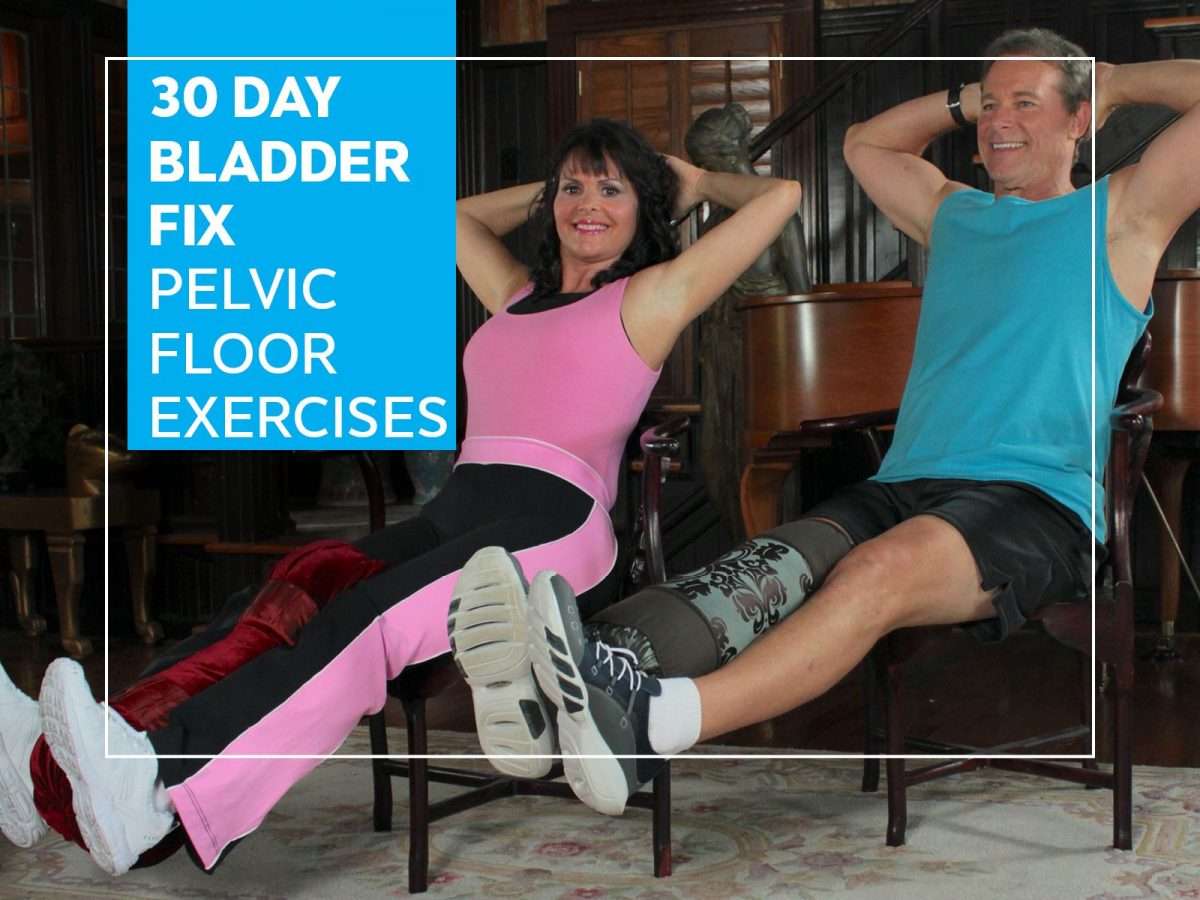Kegel Exercises Are A Natural Way To Improve Bladder Control
Pelvic floor exercises, known as Kegels, are an excellent way to improve bladder control naturally. These exercises strengthen your pelvic floor muscles, enhancing your ability to hold it in and reduce the risk of leaks when you cough, sneeze, or lift something heavy.
Kegel exercises can strengthen bladder muscles in both women and men, helping people manage symptoms of urinary incontinence. In this article, we explain the step-by-step process for women to improve bladder weakness.
How To Do Kegel Exercises
Once you know what the movement feels like, do Kegel exercises 3 times a day:
- Make sure your bladder is empty, then sit or lie down.
- Tighten your pelvic floor muscles. Hold tight and count 3 to 5 seconds.
- Relax the muscles and count 3 to 5 seconds.
- Repeat 10 times, 3 times a day .
Breathe deeply and relax your body when you are doing these exercises. Make sure you are not tightening your stomach, thigh, buttock, or chest muscles.
After 4 to 6 weeks, you should feel better and have fewer symptoms. Keep doing the exercises, but do not increase how many you do. Overdoing it can lead to straining when you urinate or move your bowels.
Some notes of caution:
- Once you learn how to do them, do not practice Kegel exercises at the same time you are urinating more than twice a month. Doing the exercises while you are urinating can weaken your pelvic floor muscles over time or cause damage to bladder and kidneys.
- In women, doing Kegel exercises incorrectly or with too much force may cause vaginal muscles to tighten too much. This can cause pain during sexual intercourse.
- Incontinence will return if you stop doing these exercises. Once you start doing them, you may need to do them for the rest of your life.
- It may take several months for your incontinence to lessen once you start doing these exercises.
What You Can Do: Drink Plenty Of Liquids
It helps clear out harmful things like bacteria and may help prevent bladder cancer by flushing out certain chemicals. And if you don’t drink enough, your urine will have less water in it, and that can irritate your bladder. But not all liquids are the same — caffeine and alcohol can irritate your bladder. Water is always your best bet. Talk to your doctor about how much you should drink each day.
Don’t Miss: What Does The Start Of A Bladder Infection Feel Like
Bladder Training Tips To Reduce Bathroom Trips
It’s important to go the bathroom when you need to. “Holding it” can actually stretch your bladder, making it difficult to empty it completely. But there’s such a thing as going too often. An overactive bladder contracts abnormally, triggering the urge to urinate too often. This can lead to urge incontinence, which occurs when you suddenly feel a strong urge to urinate but don’t make it to the bathroom in time.The good news is that bladder training can help. Here’s how.
Why Does Our Bladder Fail Us

The bladder is like a balloon. It begins young and toned, smoth and supple. It fills and empties efficiently.
With age, after repeated filling and emptying, it loses tone and elasticity and doesnt fill and empty as efficiently.
The pelvic floor supporting the bladder can begin to weaken and sag, just like this sling. For many women, the pelvic floor never fully recovers its elasticity after pregnancy this leads to loss of bladder control.
Result: Increase in bathroom visits, a constant need to go, as wel I as leaks & accidents.
The bladder is like a balloon. It begins young and toned, smoth and supple. It fills and empties efficiently.
With age, after repeated filling and emptying, it loses tone and elasticity and doesnt fill and empty as efficiently.
The pelvic floor supporting the bladder can begin to weaken and sag, just like this sling. For many women, the pelvic floor never fully recovers its elasticity after pregnancy this leads to loss of bladder control.
Result: Increase in bathroom visits, a constant need to go, as wel I as leaks & accidents.
Read Also: Medication For A Weak Bladder
What The Caregiver Can Do
- Encourage or help the patient with appropriate skin care after using the bathroom. Use warm water and pat the area dry.
- Help the patient keep a diary that records specific foods or drinks that may affect how frequently the patient goes to the bathroom.
- Help the patient maintain a bladder or bowel plan.
- Encourage the patient to go to the bathroom at consistent time frames during the day, like after a meal.
- Encourage regular daily exercise, as permitted by the health care team.
Read Also: Side Effects Of Immunotherapy For Bladder Cancer
Tip #: Do Your Kegel Exercises
Kegel exercises are pelvic muscle strengthening exercises that can help make the muscles under the uterus, bladder and bowels stronger.
“A lot of women don’t do these correctly,” Dr. Crisp explains. “So you’ll want to look online and find instructions on exactly which muscles in the pelvic floor you’re wanting to exercise.”
Learn more about overactive bladder and how to control it in our Health Library
Don’t Miss: New Drug For Bladder Cancer
Can Overactive Bladder Be Controlled
Overactive bladder therapy can be challenging to manage. However, many people are very satisfied with the treatment they receive and they often see a dramatic improvement in their quality of life. Your doctor will guide you to the best steps to begin with and give you options for any additional treatments you may need over time.
This Is How To Calm Your Bladder And Pee Less Often
SPECIAL FROM
Do you often feel the urge to pee and feel like you just can’t hold it? Do you head to the bathroom far more than you think is normal? You may have overactive bladder , a condition that affects about 33 million Americans. With OAB, people experience sudden urges to urinate that they can’t control, as well as the need to urinate frequently. People with OAB may also leak when they experience the urge to urinate.
Also Check: Ways To Strengthen Your Bladder
Mistake #: Not Drinking Enough Water
Many urinary complaints are related to poor hydration. Generally speaking, if your urine is clear or very light, that’s a sign you are drinking the right amount of water. If your urine is dark yellow or amber, that’s usually a sign of dehydration.
Odor, an “off” color, and the sense of burning while voiding are other signs that might indicate you are not properly hydrated. Not drinking enough water can contribute to UTIs and kidney stones. Concentrated urine can irritate the lining of the bladder, making it more sensitive. It is also more likely to form kidney or bladder stones.
Many patients ask if drinking alternative fluids will suffice, but many beverages contain high sugar concentrations or caffeine, which can have other health effects, says Dr. Brito, noting these might make overactive bladder symptoms worse. Water is the safest option to maintain hydration and keep your kidneys and bladder healthy.
There are some conditions that can make your urine appear more concentrated even if you are well-hydrated, such as liver problems or hematuria. So, if you are drinking enough water but have dark-colored urine, odor, or burning, its worth a trip to a urologist, who can evaluate your symptoms more closely.
“The ability to urinate freely and without difficulty is taken for granted by most people,” says Dr. Brito. So, next time you have to go, follow the above advice for better urinary health.
How To Strengthen Your Bladder And Urinate Less Often
This article was medically reviewed by Allison Romero, PT, DPT. Dr. Allison Romero is a Pelvic Health Specialist, Physical Therapist, and the Owner of Reclaim Pelvic Therapy in the San Francisco Bay Area. With over a decade of experience, Allison specializes in comprehensive pelvic physical therapy treatments for pelvic floor dysfunction. She holds a Bachelor of Science in Kinesiology and Exercise Science from Sonoma State University and a Doctor of Physical Therapy from the University of Southern California. Allison is a board certified Physical Therapist in California and is a member of the American Physical Therapy Association-Section on Womens Health and the International Pelvic Pain Society.There are 19 references cited in this article, which can be found at the bottom of the page.wikiHow marks an article as reader-approved once it receives enough positive feedback. In this case, 100% of readers who voted found the article helpful, earning it our reader-approved status. This article has been viewed 963,372 times.
You May Like: Apple Cider Vinegar And Bladder Infection
What Is Pelvic Organ Prolapse
Pelvic organ prolapse occurs when the muscles that support your bladder, uterus, and rectum become weak and allow these organs to fall. This can cause urine leakage and other discomforts like lower back pain! If you want to fix a weak bladder then avoid problems like this because it can be dangerous!
What You Can Do: Pelvic Floor Exercises

Your pelvic floor goes from your genital area to the base of your spine. Itâs made of muscles that help control your bladder. To make them stronger, pretend you want to stop yourself from going to the bathroom — you should feel a pull in your genital area and your backside when you squeeze. Try to hold it and build up to 10 seconds, or do 8 to 10 quick squeezes. Over time, this may help keep those muscles working like they should.
Also Check: What Medications Can Cause Overactive Bladder
What You Can Do: Clean Carefully
After you poop, be sure to wipe from front to back so bacteria doesnât get near your genitals. When you wash, be gentle and donât use harsh soaps that can damage the sensitive skin in the area and let bacteria in. And a shower can be better than a bath. Sitting in bathwater can let bacteria and other irritants get inside your urinary tract.
Manufacturer Reputation & Transparency
In some cases, several UTI and bladder control supplement companies have been producing helpful supplements for decades. Others are brand new to the game. We werent necessarily biased in favor of new businesses, but we did prefer supplement companies with a track record of producing high-quality goods.
Recommended Reading: Cat Food To Prevent Bladder Stones
Read Also: Is Epsom Salt Good For Bladder Infections
Seeking Medical Treatment For Incontinence
Tip: Make sure to tell your doctor about any other symptoms you are having along with loss of bladder control.
Mor Logic Bladder Control
MOR Logic Bladder Control is a bladder control supplement that helps with incontinence, bowel relief, and constipation. Using MOR Logics Bladder Control daily, you can stop urine leaks and an overactive bladder while preventing frequent urination.
MOR Logic Bladder Control contains zinc, copper, iodine, a proprietary blend of silymarin, myristic acid, and a mysterious substance known as Brazilian extract.
MOR Logics Bladder Control may be the correct pick for you if youre looking for unique ingredients that you wont find anywhere else.
Dont Miss: Can A Bladder Infection Be Painful
Don’t Miss: How To Treat Overactive Bladder
Living With Bowel Or Bladder Incontinence
There is no single, right way to cope with bladder or bowel incontinence. The challenge is to find what is best for your situation, so you can get the help you need and return to a normal daily life. Talk with your health care team if you notice a change in bowel or bladder habits, and about the best ways to manage incontinence, if it is a problem. You might find it helpful to talk with other people who are dealing with incontinence, too. Ask a member of your cancer care team about support groups in your area.
Here are some things you can do that may help make incontinence less of a problem:
- Empty your bladder every 3 to 4 hours while awake, to avoid accidents.
- Empty your bladder before bedtime or before strenuous activity.
- Limit drinks with caffeine, or and avoid alcohol and citrus juices, which can irritate the bladder and make you have to go more often.
- Avoid hygiene products that may irritate you Women should avoid feminine spray or over-the-counter vaginal suppositories.
- Because belly fat can push on the bladder, avoiding weight gain or losing needed weight sometimes helps improve bladder control.
- Avoid tobacco use which can cause coughing and bladder irritation due to harmful substances in tobacco products.
- Talk to your doctor about all medicines, vitamins, herbs, and supplements youre taking. Some may affect urine control.
How To Strengthen The Bladder
Approximately 17% of women over the age of 18 suffer from overactive bladder . This number increases with age and 20% of women over the age of 40 suffer from OAB. Also, 29% of women between the ages of 60 and 70 experience leakage of urine while coughing, sneezing, or laughing. You should know you are not alone. Your healthcare provider can recommend tips for how to strengthen the bladder and we have some tips for you too.
Don’t Miss: Bcg Dose For Bladder Cancer
Could There Be Other Reasons I Seem To Pee All The Time
Absolutely. If, out of nowhere you develop a need to wee frequently, or it burns or stings when you pass urine, you may have a urinary tract infection . Other symptoms of a UTI include having cloudy urine and feeling like you need to pee after you just went.
If youre peeing very often and drinking excessive amounts of liquid because youre always thirsty, pay attention as these can be symptoms of diabetes.
Other conditions can also cause a frequent need to urinate. These include issues such as organ prolapse, anxiety disorders, pregnancy or bladder problems, among others. Ingesting a lot of diuretics can also increase your need to wee.
If youre concerned about how frequently you need to pee, or youre leaking urine or have other symptoms, see your GP.
And, if you do end up seeing a pelvic health physio, Samara wants you to know that having an individualised program can lead to astounding results.It literally takes 21 days to make a habit, and over that time the majority of women will notice their symptoms have significantly improved.
Dr Evelyn Lewin is a qualified GP who has completed a diploma in obstetrics and gynaecology. Along the way, she also had three kids and developed a massive coffee addiction . Nowadays, she works as a freelance writer.
Read more stories like this – Everything you need to know about bladder leakage and 7 surprising facts about bladder control.
Like this article? Share it with a friend!
The Relationship Between Bladder Muscles And Oab

Overactive bladder is a common issue for adults, especially as they age. According to the Urology Care Foundation, about 30% of men and 40% of women have symptoms of an overactive bladder.
Different factors contribute to an overactive bladder, including nerve signals between the brain and the bladder. There is also a relationship between the bladder muscles and urinary urgency and leakage.
Normally when you have to urinate, your brain sends a signal to the bladder. The bladder muscles squeeze, the urethra opens and urine flows out of the bladder. When the bladder is not full, the muscles relax.
Overactive bladder can develop for a variety of reasons, such as nerve damage that affects the signals between the bladder muscles and the brain. It can also occur if the muscles in your bladder are too active. This is why knowing how to relax your bladder muscles is important.
The overactive muscles make you feel urinary urgency. Also, the muscles that support your bladder may be weak, which contributes to urinary leakage.
You May Like: Cranberry Supplements For Bladder Infection
How Bladder Training Can Help
After going through bladder training, you should be able to:
- Go longer periods of time between bathroom visits
- Hold more liquid in your bladder
- Have more control over the urge to go
Although you probably want to see results right away, be patient. Bladder retraining can take six to 12 weeks to be successful.
If you’ve been trying bladder training for several weeks and it still isn’t working, check back in with your doctor. You might need to try other approaches, like medication or surgery.
Show Sources
How Common Is Urinary Incontinence
Its common for a new mother to accidentally leak urine when she laughs, sneezes, coughs or exercises. This is known as stress incontinence.
You are more likely to develop stress incontinence after birth if you:
- have bladder or bowel problems before pregnancy they are likely to get worse after the birth
- have a long labour, especially a long second stage of labour
- have a difficult delivery, such as needing stitches, tearing, or needing a vacuum cup or forceps during the delivery
Women who have a caesarean can also develop bladder problems. Having a caesarean can reduce the risk of severe incontinence from 10% to 5% for the first baby, but after the third caesarean women are just as likely to develop bladder problems as women who give birth vaginally.
Don’t Miss: Bladder Mesh Class Action Lawsuit